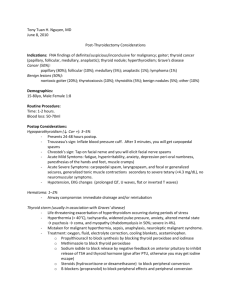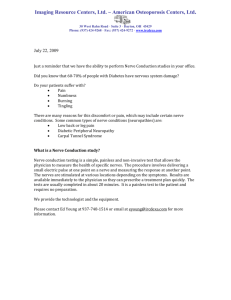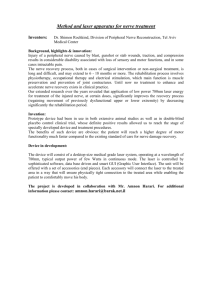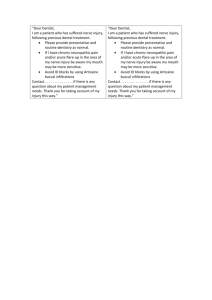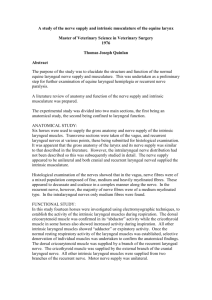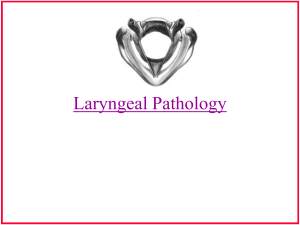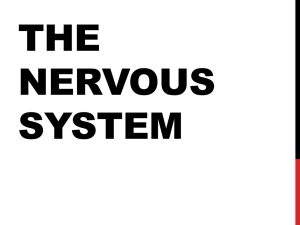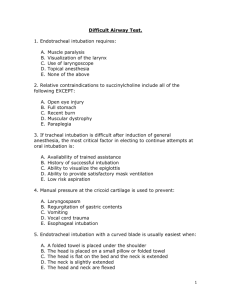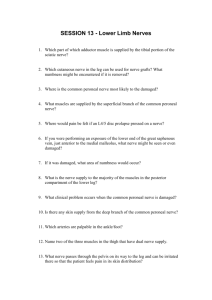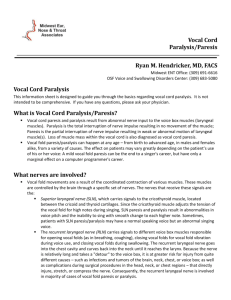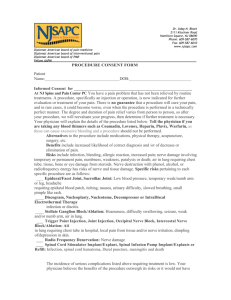Post Operative Complications of Thyroidectomy What are the
advertisement
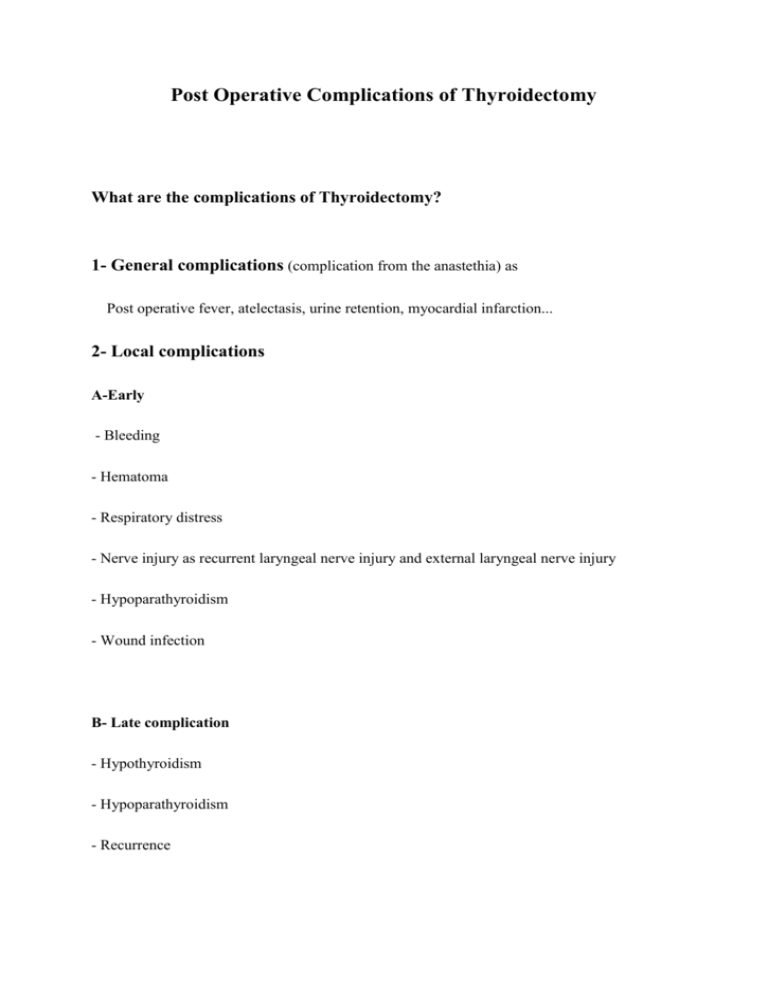
Post Operative Complications of Thyroidectomy What are the complications of Thyroidectomy? 1- General complications (complication from the anastethia) as Post operative fever, atelectasis, urine retention, myocardial infarction... 2- Local complications A-Early - Bleeding - Hematoma - Respiratory distress - Nerve injury as recurrent laryngeal nerve injury and external laryngeal nerve injury - Hypoparathyroidism - Wound infection B- Late complication - Hypothyroidism - Hypoparathyroidism - Recurrence What are the causes of respiratory distress post Thyroidectomy? 1- Bleeding and hematoma It leads to increase the pressure in the neck which compress on the great veins and leads to laryngeal edema. Treatment : open the wound immediately at the bed site, intubate the patient if it is severe respiratory compromise (Oxygen saturation < 89%), give the patient hydrocortisone, and take the patient to the operating room to evacuate the hematoma and stop the bleeding. 2- Bilateral recurrent laryngeal nerve injury, treated by intubation then tracheostomy. 3- Severe hypoparathyroidism 4- Tracheomylecia In long standing Goiter, the goiter compress on the Trachea which leads to atrophy of the Cartilage. when removing the Goiter, the trachea will collapse. Treated by intubation then tracheostomy. Hypoparathyroidism post thyroidectomy Causes 1- Most commonly due to ischemia to the parathyroid gland secondary to ligation of the thyroid arteries (mostly the inferior thyroid artery). 2- It could be due to accidental removing the gland during the surgery. Symptoms 1- Asymptomatic. 2- Mild symptoms as : weakness , muscle cramps, abnormal sensations such as tingling, burning and numbness (paresthesias) of the hands, perioral numbness, headache., spasms of the facial muscles when tapping over the facial nerve(Chvostek Sign), carpopedal spasm produced by mild compression of nerves (Trousseaus Sign). 3- Severe symptoms as convulsion, tetany and cardiac arrhythmia. Treatment 1- For the asymptomatic hypoparathyroidism, observation. The mild hypocalcemia will stimulate the gland to secret the PTH. 2- For mild hypoparathyroidism, oral calcium as calcium gluconate (600mg- 1.2g/ day), and Vitamin D ( calcitriol 0.5ug- 4 mg). 3- For sever hypoparathyroidism, i.v calcium gluconate ( 10g of calcium gluconate in a liter of NS at rate of 30ml/hour and titrated for the symptoms and serum calcium level). Nerve injury post thyroidectomy 1- Recurrent laryngeal nerve injury RLN innervates all the intrinsic muscles of the larynx with exception of the Cricothyroid muscle,which is supplied by the superior laryngeal nerve . Mechanism of injury to the nerve includes complete or partial transaction, traction, contusion, crushing injury, thermal damage, or compromised blood supply. Unilateral RLN injury causes the ipsilateral vocal cord to remain in the median or paramedian position. The voice may be hoarse and breathy. The patient's cough is weak, and aspiration may occur. Presentation is often subacute. Definite voice changes may not manifest for days or weeks. The paralyzed vocal fold undergoes atrophy, causing voice to worsen. Dysphagia and aspiration are other potential sequelae of unilateral vocal fold paralysis. Bilateral RLN paralysis may manifest immediately after extubation and patient exhibit signs of airway obstruction in the immediate postoperative period. Bilateral RLN injury is a severe, life threatening complication that results in airway obstruction and requires immediate attention. In this condition, both vocal cords remain in a median or paramedian position. As a result, the patient exhibits inspiratory stridor, dyspnoea, tachypnoea, and nasal flaring, although the voice is near normal. 85 % of the patients will recover within 6 months period. 15% of patient will not show any sign of recovery even after six months of surgery and were declared as permanent RLN palsy. Any corrective procedure is not recommended for unilateral vocal cord paralysis until at least six months because a reversible injury may improve by that time. Different treatment options are recommended; medialization of the vocal cord, neurorrhaphy of RLN and reinnervation of vocal cord . Medialization by injection laryngoplasty (Gel foam injection, Sialastic or Gore -Tex implant) or by laryngeal frame work surgery ( thyroplasty) is commonly performed. Neurorrhaphy of RLN with good results has been reported at some specialized centers. Reinnervation is another recommended procedure for permanent RLN injury. Phrenic nerve, Ansa cervicalis, Hypoglossal nerve or preganglionic sympathetic neurons have been used with limited success. The principal goals for surgery in case of bilateral vocal cord paralysis are to improve air way patency. Cordotomy and arytenoidectomy are the most common procedures. However, the patient must be counseled about worsening of voice quality postoperatively. 2- External laryngeal nerve injury External laryngeal nerve is a branch of superior laryngeal nerve. it innervates the Cricothyroid muscle. Injury to the nerve lead to loss of the tense of the voice. The patient has inability to perform high pitch sound. It can be detected by inability of the patient to do an explosive cough. DR. S. ALDAQAL

